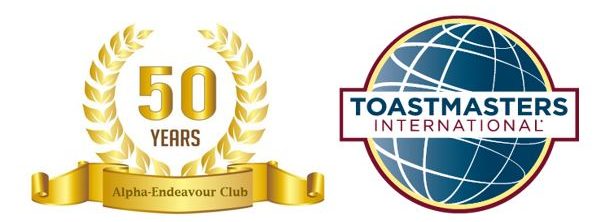 By Gangadhar Krishna, DTM
By Gangadhar Krishna, DTM
Evan Esar, an American humourist, once said, “Public speaking is the art of diluting a two-minute idea with a two-hour vocabulary.” The idea of standing in front of a room and delivering a prepared speech, complete with appropriate pauses and humorous phrases, may seem an insurmountable feat to newcomers. Good speakers make it seem so easy. But they have a secret: They prepare ahead of time and craft their speeches on paper and in their heads before delivering it to a group. I call it the “Write, Edit, Practice” method.
Write, Write, Write
Good speeches begin with a thought. Go pour all your thoughts on paper. As you start putting those thoughts into words, your first draft will start taking shape. First drafts don’t have to be perfect; they just have to be written. As you write, you will find new ideas and angles popping up. Write them down. Just the process of writing has a way of clarifying an issue. Worry about paring down later.
Edit and Sharpen
Having zeroed in on the topic and exhausted all your thoughts, begin to focus on the objectives of the speech.
Evaluate your words. A good rule of thumb is that a five- to seven-minute speech should be around 800 words. Like a great sculptor who chisels on a block of marble until a beautiful shape is created, you now need to take that rough block of written ideas and give it some form. Think of your central idea and then reread what you’ve written. Cut whatever isn’t necessary to what you are trying to say. Be ruthless. Break up long sentences and use simple words to make it easier to internalize and deliver.
Use visual reminders to guide your delivery. Having pared down your speech to the right amount of words, read it as you would like to deliver it. Tailor your fonts or use symbols to give you visual cues on your speaking tone in different spots in the script. Decide where you want to speak ~softly~ and where you want to speak loudly. Leave some space … if you want to give a pause. Use question marks or exclamation points for further reminders.
Be aware of time constraints. One aspect of a good speech is adhering to time limits, so pay close attention as you practice. While it is important to convey what you wish to say, it is equally important to say it within the allotted time. Respect the agenda. If you’re allotted 10 minutes for a presentation, people will grow annoyed if you go on for 20 minutes. On the Toastmasters side, it can be devastating to deliver a great speech in a contest but get disqualified because you exceeded the time limit by a few seconds. I once witnessed the disqualification of an otherwise outstanding speech when the speaker went too long over the allotted time.
When I went over my time limit on a speech, my mentor, Vincent De Tholath, reminded me that while it’s important to get your message across, time is also important. He told me to simply “focus on the objectives.” You may have four points to make, but if you don’t have time, it’s better to take the two main points and convey them meaningfully.
Practice
Practice your speech until you are comfortable with it. Once you have the words in place, you can add the desired expressions and emphasis on particular words. Mix in pauses and eye contact as you imagine an audience in front of you.
It’s best to practice your speech out loud in a place where you’re comfortable and have some privacy—the car, your bedroom, even the shower or bathtub. You must speak loudly enough to be heard, clearly enough to be understood, and slowly enough for your audience to keep up.
Finally, internalize your speech—get so comfortable with it that when you are actually in front of your audience, you only have to focus on them rather than on your speech. Let it flow from your heart and your head.
Internalizing doesn’t mean memorizing. Ed Tate, Toastmasters’ 2000 World Champion of Public Speaking, in his book Speaker’s Edge said, “Internalizing means that you own the material and it’s a part of you—it’s in your head and your heart. It’s visceral. It’s in your gut. As a result, you come across as real, authentic, and genuine.”
Although at first it may seem overwhelming, the “Write, Edit, Practice” method will soon become simply a part of any speech you prepare. Before you know it, you’ll feel comfortable and confident delivering a speech to any audience.
Gangadhar Krishna, DTM lives in Dubai, United Arab Emirates. He is a member of the City of Gold Toastmasters and HR Connexions Toastmasters clubs, both in Dubai. He is the author of “Delighting Customers” Find out more at http://delightingcustomers.com/


 By Gangadhar Krishna, DTM
By Gangadhar Krishna, DTM
 ill set an applicant apart from equally qualified candidates during the interview process and help to advance their career.”
ill set an applicant apart from equally qualified candidates during the interview process and help to advance their career.”